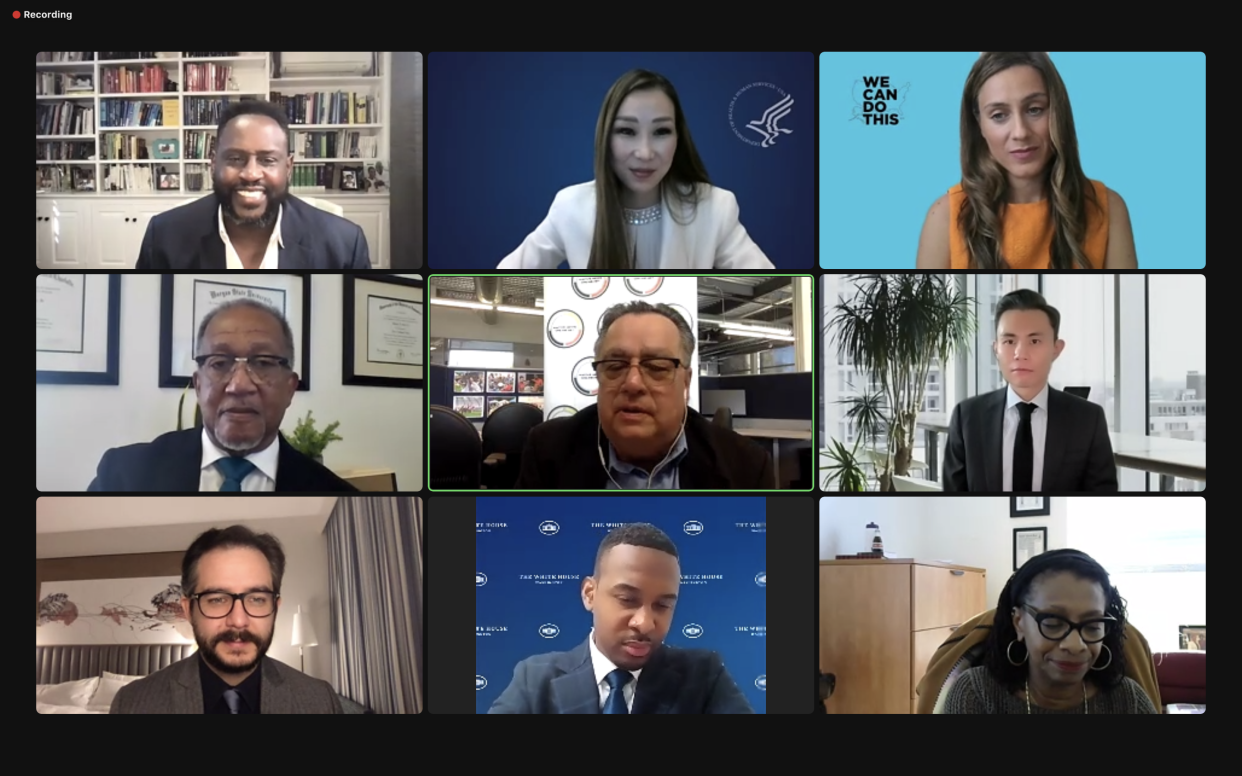CDC Urges COVID-19 Boosters as Winter Approaches

- Oops!Something went wrong.Please try again later.
- Oops!Something went wrong.Please try again later.
The U.S. Department of Health and Human Services held a press briefing on Oct. 27 to discuss the latest COVID-19 information and share the Biden administration’s effort to encourage vaccination boosters.
Speakers included Dr. Cameron Webb, the Senior Advisor to the White House COVID-19 Response Team; Dr. Vivek Murthy, U.S. Surgeon General; and Dr. José Romero, the Director of National Center for Immunization and Respiratory Diseases at the Centers for Disease Control and Prevention (CDC).
Murthy said that it’s an important moment to spread vaccine awareness as we head into the winter, to avoid potentially life-threatening illness.
“If you look at the last couple of years…we've experienced an increase in cases in each of the last two winters,” he said. “And that's not unusual. We know that these viruses tend to spread more easily in cold weather. [But] the good news .. is that we have now an updated vaccine that people five and up can take— as long as they're two months out from their last shot. And this updated vaccine is specifically tailored to the dominant variant of COVID that's circulating right now.”
In September, the CDC endorsed updated COVID-19 booster shots for most adults and some children to protect against new variants, depending on the brand of the first vaccine they received. According to CDC Director Rochelle Walensky, the updated vaccine boosters add Omicron BA.4 and BA.5 spike protein components to the current vaccine composition, which helps to restore protection that has waned since previous vaccination by targeting variants that are more transmissible and immune-evading.
According to Murthy, even if you become infected with COVID-19 after getting vaccinated, your chances of having severe symptoms that may land you in the hospital or cost your life are markedly lower.
“We've seen that consistently, time and time again, when you look at the data in our country as well as in other countries,” he said. “The vaccinations work to save lives. So the bottom line is that, with a combination of vaccines and treatments, we should be able to prevent the vast majority of deaths from COVID-19.”
About the Author: "Native News Online is one of the most-read publications covering Indian Country and the news that matters to American Indians, Alaska Natives and other Indigenous people. Reach out to us at editor@nativenewsonline.net. "
Contact: news@nativenewsonline.net

